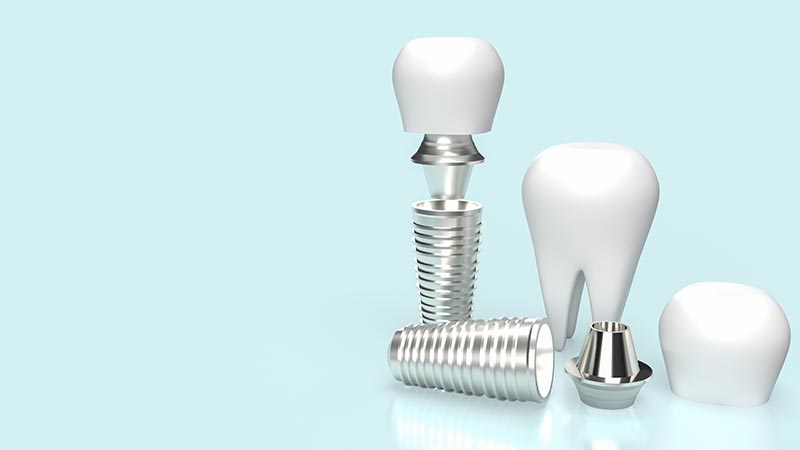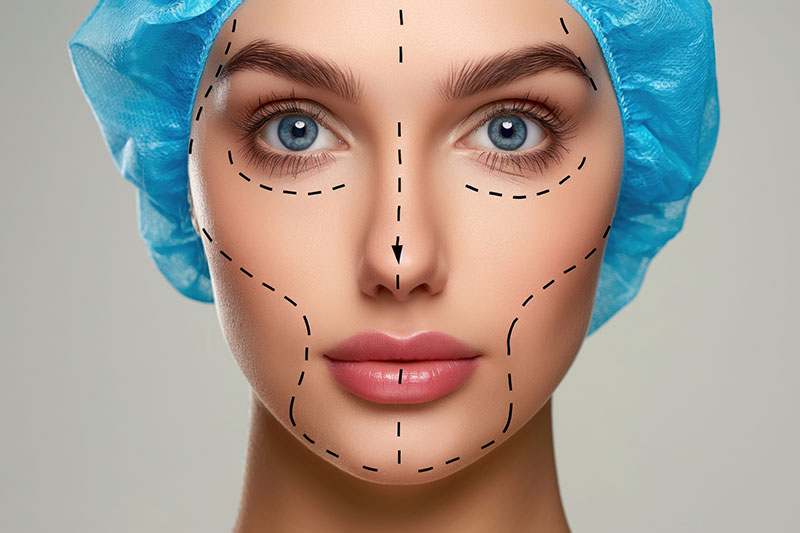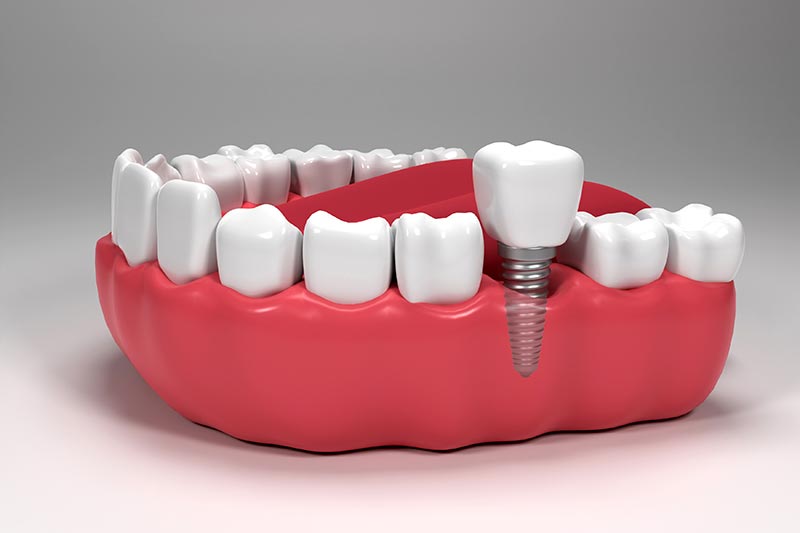General Importance of Oral and Dental Health
Oral and dental health is crucial for the overall health of the body. Healthy teeth and gums are not only important for aesthetics, but also for proper chewing and speaking function.
- Disease prevention: Healthy mouth and teeth can reduce the risk of systemic diseases such as heart disease, diabetes and infections.
- Nutrition: Healthy teeth enable effective chewing of food and contribute to the digestive system.
- Spiritual and social impacts: Good oral health increases the individual’s self-confidence and has a positive effect on their social relationships.
Neglecting dental health can lead to problems such as tooth decay, gum disease and bad breath. Therefore, regular dental check-ups and a daily care routine are highly recommended.
The connection between oral and dental health and general health
Oral and dental health is directly related to general body health. It can lead to serious health problems such as oral and dental diseases, heart disease, diabetes and respiratory infections.
- Bacterial infections: Bacteria that accumulate in the mouth can enter the bloodstream and cause heart valve infections.
- Diabetes management: Gum disease can make diabetes difficult to control. People with diabetes need to pay more attention to their oral and dental health.
- Pregnancy complications: The risk of premature birth and low birth weight may increase in women who neglect oral health during pregnancy.
Untreated dental problems can negatively impact a person’s eating habits, speech ability, and overall quality of life. Therefore, regular dental check-ups and good oral hygiene are very important.
Damage caused by neglect of oral and dental health
If oral and dental health is not given due attention, it can have many negative consequences. Neglected oral and dental health can cause the following damage:
- Tooth decay: Untreated tooth decay can lead to tissue loss and tooth loss.
- Gum disease: Inflammation of the gums damages the supporting tissue of the teeth.
- Bad breath: It is caused by inadequate cleaning and can cause social and psychological problems.
- Infections: Untreated mouth infections can spread to other organs.
- Heart disease: Mouth health problems can cause heart disease.
Mouth health problems can cause heart disease
Oral and dental health plays a crucial role in maintaining overall health. Here are some common oral and dental diseases:
- Tooth decay: It occurs when food residues and bacteria damage the tooth enamel.
- Gum disease: Swelling, redness and bleeding of the gums may occur.
- Bad breath (halitosis): Bacterial plaque, gum disease or other health problems may be the cause.
- Aphthous ulcers and herpes: Painful wounds appear in the mouth.
- Dental erosion: Acidic foods and drinks can attack tooth enamel.
- Teeth grinding (bruxism): Caused by stress and sleep disorders.
Caries and treatment methods
Caries is caused by inadequate oral hygiene. There are various methods for treating caries:
The most common treatment methods
- Fillings: After cleaning the rotten area, the resulting gap is closed with special filling materials.
- Root canal treatment: If the dental nerves are damaged, the nerves are removed and cleaned.
- Crown: If a large part of the tooth is damaged, coverings called crowns are used.
Early diagnosis prevents the progression of caries and delivers results with simpler treatments.
Gum disease and ways to prevent it
There are some important steps you can take to protect yourself from gum disease:
- Daily tooth cleaning: Brushing your teeth twice a day and using dental floss prevents plaque formation.
- Regular dental check-ups: A visit to the dentist at least every six months ensures early detection of possible problems.
- Stop smoking: Smoking should be stopped as it has negative effects on gum health.
- Healthy nutrition: Sugary foods and drinks should be avoided and foods rich in vitamins and minerals should be consumed.
- Using antiseptic mouthwash: To prevent gingivitis, an antiseptic mouthwash can be used.
The importance of regular dental check-ups
Regular dental check-ups are crucial for maintaining oral and dental health. It is recommended to visit the dentist at least twice a year. The benefits of these visits include:
- Early diagnosis and treatment: Problems such as tooth decay and gum disease can be diagnosed and treated early.
- Prevention: Preventive measures such as tartar removal and fluoride application are offered.
- General health: Oral health is directly related to overall health. Dental problems can lead to other health problems.
- Education and awareness raising: The dentist informs the individual about proper tooth brushing and the use of dental floss.
For these reasons, regular visits to the dentist are important for healthy teeth and general health.
Methods for protecting oral and dental health
Measures to protect oral and dental health are possible by correcting daily habits and regular care:
- Regular brushing of teeth: Teeth should be brushed twice a day with fluoride toothpaste.
- Usage of dental floss: Dental floss should be used daily to prevent plaque buildup.
- Mouthwash: Using an antibacterial mouthwash can reduce harmful bacteria in the mouth.
- Avoid sugary foods and drinks: To prevent tooth decay, sugary foods should be avoided.
- Regular dental check-ups: Diagnosis and treatment requires a visit to the dentist every six months.
- Eating a balanced diet: For the health of teeth and gums, foods rich in vitamins and minerals should be consumed.
Nutrition and Dental Health
A balanced diet is very important for dental health. Experts say that various foods and drinks should be avoided to protect oral health. Recommended foods and things to keep in mind are as follows:
- Drink lots of water: Helps remove food particles and bacteria.
- Calcium-rich foods: Products such as milk, cheese and yoghurt help strengthen tooth enamel.
- High-fiber foods: Vegetables and fruits help clean teeth by increasing saliva flow.
- Sugary and carbonated drinks: It is recommended to avoid such products as they can cause tooth decay.
- Tea and coffee: It contains substances that can damage tooth enamel, consumption should be limited.
These early habits form the basis for healthy teeth and gum health in the years to come.
Brush your teeth and floss
Brushing and flossing your teeth is important to maintain dental health. When brushing your teeth, keep the following in mind:
- Brush your teeth at least twice a day, morning and evening.
- Brushing your teeth should take at least two minutes.
- Prefer a toothpaste containing fluoride.
- When brushing your teeth, the gums should be treated gently.
Dental floss also plays an important role in maintaining dental health:
- Dental floss should be used daily.
- Dental floss removes plaque and food particles from between your teeth.
- It should be applied with the correct technique; gums should not be damaged.
These methods are effective in preventing gum disease and tooth decay.
Bad Breath and Solutions
Bad breath is a serious problem that negatively affects social life.
- Brushing your teeth regularly: Using the correct technique, teeth should be brushed at least twice a day.
- Usage of dental floss: Dental floss should be used to remove plaque and food debris.
- Mouthwash: Antibacterial mouthwashes can reduce bad breath.
- Tongue cleaning: The tongue should be cleaned with tongue cleaners or brushes.
- Regular dental check-ups: Dental check-ups ensure the protection of oral health.
- Appropriate water consumption: Drink plenty of water to prevent dry mouth.
- Pay attention to your diet: Consumption of strong smelling foods such as garlic and onions should be limited.












